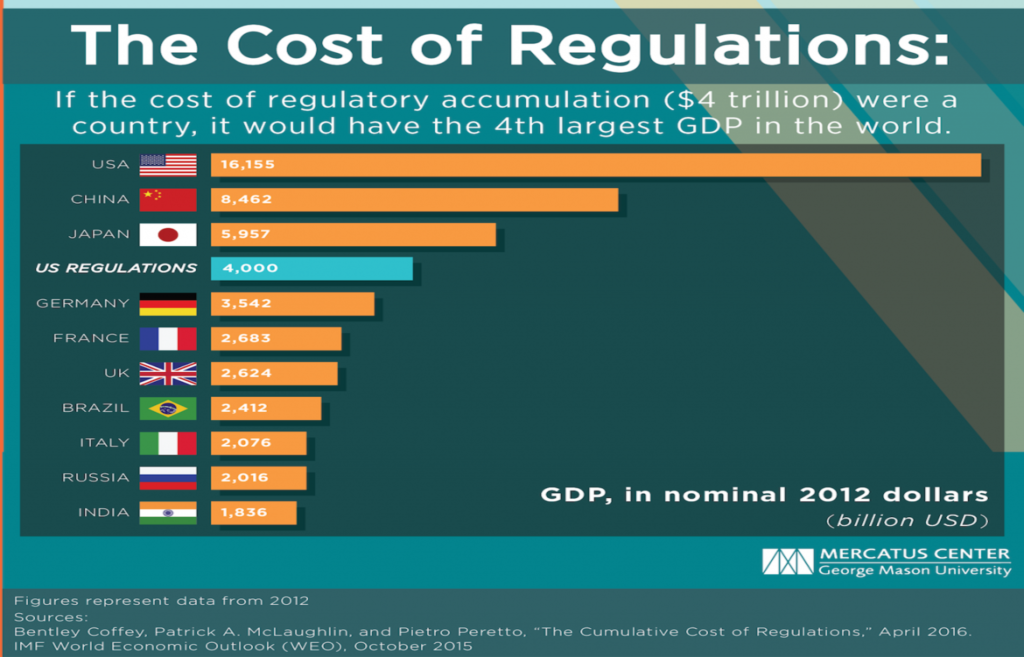Federal regulations cost every U.S. resident $6,000 in 2019
Much like taxes, regulations impose a significant burden on businesses and individuals. However, unlike taxes, regulations are hard to measure and quantify. But through existing efforts, we are starting to get an idea of just how much the economy loses when businesses and individuals are forced to jump through hoops when conducting economic transactions.
The cost of regulation is tremendous and it grows every year
Regulations impose costs mainly through compliance costs. When companies have to devote time and resources to complying with regulations, it leaves less time and resources for other investments. This leads to lost income, lower economic growth, higher prices, and fewer jobs. Not to mention, some businesses are never even created just for the sheer existence of these regulations. These costs add up and grow over time as the regulatory code keeps expanding.
One study from the Mercatus Center that has quantified the cost of regulation, for example, estimates that between 1980 and 2012, growth in the federal regulatory code costs the US $4 trillion. Even worse, this accumulation of regulation disproportionately affected disadvantaged groups like low-income individuals and low-skilled workers.

Cost of Federal Regulation in 2019
Quite recently, another study from the Competitive Enterprise Institute, estimated how much federal regulation cost for the year 2019. According to the report, federal regulations cost the US economy about $1.5 trillion annually, and that is a conservative estimate. Divided by the total US population, that equates to about $6,000 per person.
When divided by the number of households, the cost exceeds $14,000 annually, on average, which is about one-fifth of the average pre-tax household budget, and is the second biggest budget item after housing. The $1.9 trillion cost of regulations
is equivalent to more than 40 percent of total federal spending, which was $4.447 trillion in 2019.
and also
exceeds the corporate and personal income taxes combined.